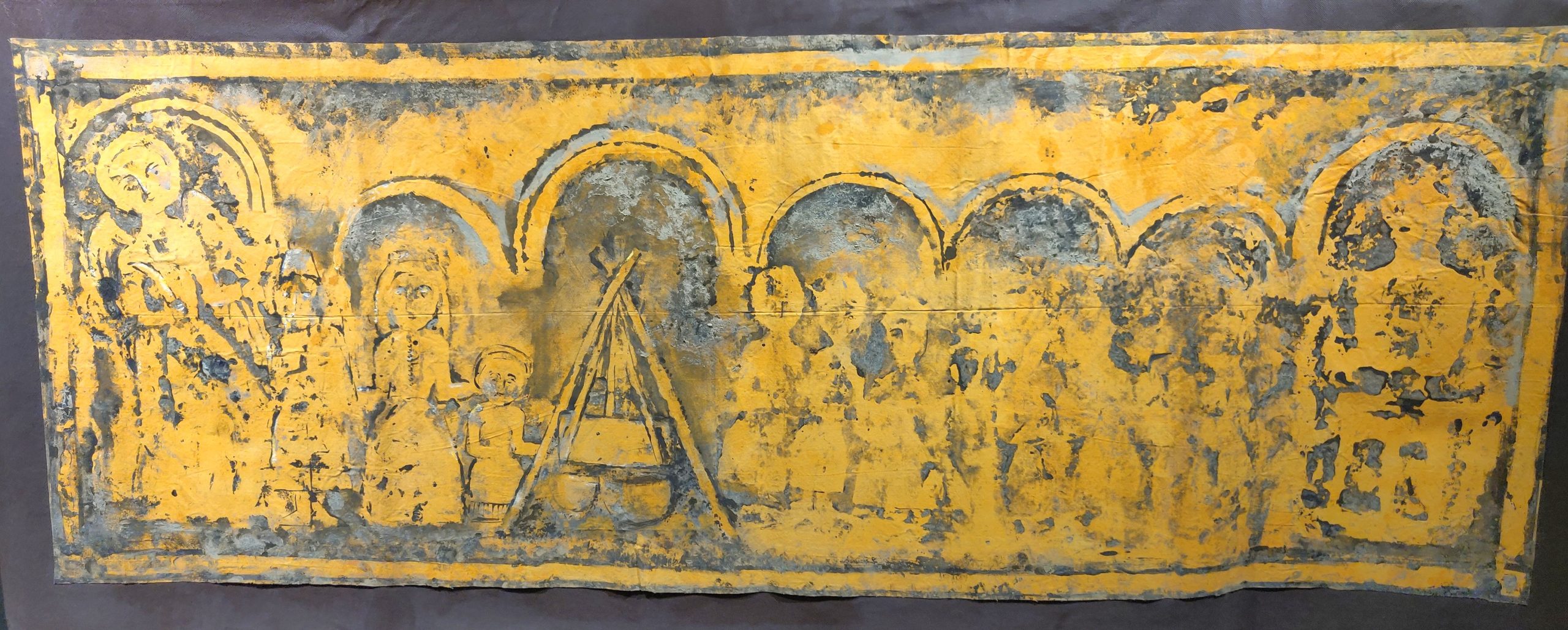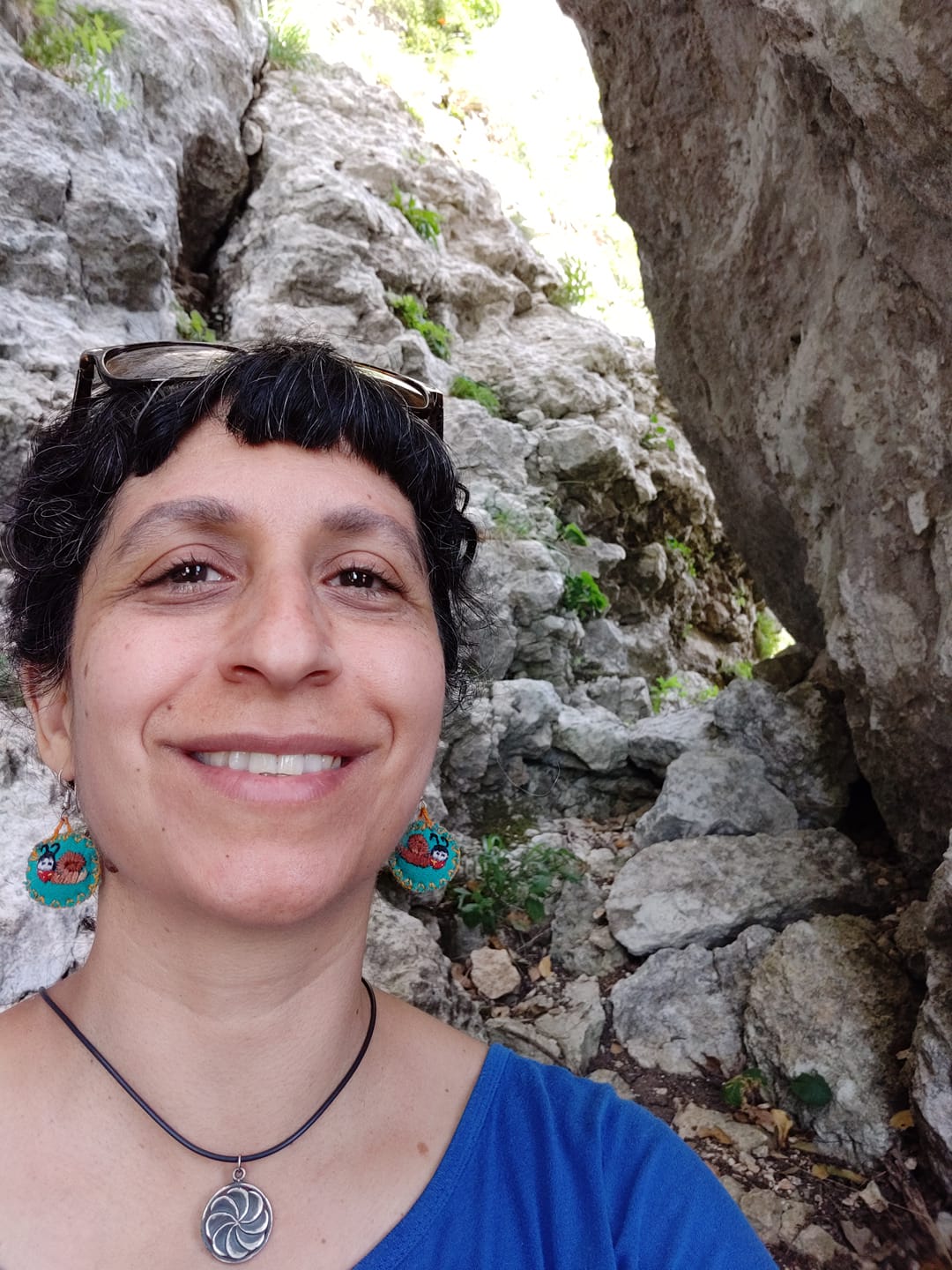
“Who knows the place where we’ve landed,
For how many days are we stranded?
When our hearts are empty, when love is gone,
‘Tis in a fire we’ve landed.”
~Hovhannes Tumanyan, 1917
***
“You can be small, and you can be smart,” Z tells me with a smile, his dark eyes full of conviction. For two hours, we talk as we wait to meet with the director of an NGO in Yerevan. I had seen Z around, but this is our first real conversation. He tells me he studied political science and fought in two wars in Artsakh—in 2016 and 2020. Soon enough we are sharing grave concerns about Armenian POWs, Azerbaijani border violations in Syunik and the complex military and narrative violence against our people. Like a river, onward our conversation flows into discussing the Israeli state’s campaign of denial, death and dispossession against the Palestinian people, and how familiar it feels. We wrestle with the challenges and opportunities Armenia faces, to build life-affirming internal and international relationships while standing with those who are oppressed, even if they do not always stand with us.
As Armenia’s external threats and internal instabilities loom large, he says for the first time he is questioning what future our nation can hold. He tells me of his young son, and of his uncle who was killed in the 2020 war. He is struggling with a sense of betrayal from within, from Armenians who put profit before the welfare of our people, especially that of soldiers and their families, and of people who were displaced.
Again, he says, “You can be small [as a person or as a nation], and you can be smart.”
Quietly, he tells me he understands the suffering of the Palestinian people. After a long pause, he says he is from Shushi and that he cannot put into words what it is like to lose his home. The trees, rocks and sky are a part of him. Without them, he says, he does not see how he can ever be completely himself again.
*
F talks with a few of us during a quiet moment before the evening’s exhibition, one of a few events this year at an art space near Yerevan. He tells me they hosted 56 displaced people from Artsakh during the winter and says that in heating the space continuously for those three months, the cement floors cracked.
Later, in walking through the exhibit I am caught in a web of interconnection made of paintings on the walls and networks of patched cracks on the floor. I wonder what the walls witnessed when they were bare, what fractures I cannot see. I wonder where those Artsakhtsis are now and how all the human cracks will mend.
*
Sitting in an outdoor café near the city center, in between bites of fresh greens and sips of ginger and lemon tea, D tells me of moving from Beirut to Yerevan, of surviving COVID and the explosion and the war. She went back to Beirut soon after the war, but she says all she found there was more heartache. There is no going back. The city she knew is gone. She tells me that in Armenia, every day is a struggle, but she also feels lucky she can make a new start here. She has an apartment and a job, and now her children are here with her.
By the time our hearts and bellies are full, it’s too late to catch the bus back to the room I’m renting, so I arrange for a taxi. The driver calls when he arrives, but there’s a miscommunication about the pick-up spot. I describe where I am standing, in front of a flower shop bursting with light and color in the otherwise dark park. He laughs and tells me to stay put, that he will find me. After a few minutes, I see someone striding briskly towards me, a little out of breath and with a flushed but determined face. It’s him, S! As we walk hastily back to his car, which turns out to be several blocks away, I realize guiltily just how far S had walked to find me. What drove him not to cancel the ride, Armenian hospitality, or poverty? Both?
S asks me where I am from. I tell him I was born in Los Angeles. He becomes feverishly animated, asking me all sorts of things about “Los,” as he calls the sprawling metropolis I once called home. He tells me he is trying to move there but the US denied his visa application. Now, he is planning to go another way. He says it will be illegal, very expensive and will separate him from his wife and two young children for a time. With his eyes on the road ahead, he says in Armenia, he cannot support his family. He cannot find work besides driving a taxi.
He tells me he is sure things will be better in Los. I don’t have the heart to destroy his dreams with tales of poverty, drought and fires in California. When we arrive at my destination, instead of «Հաջող» or «Ցտես» he says, “See you in Los!”
*
I am sitting in the backseat of a small car, sandwiched between friends and their musical instruments—a closeness common here which at first I resisted but have surrendered to, post war and vaccination. As we make our way to the evening’s main event, the opening of a retrospective exhibit at Yerevan’s Folk Art Museum celebrating the life and mixed-media works of artist Heriqnaz Galstyan, we are laughing brightly from rapid-fire jokes that:
The June election isn’t full of all three of Armenia’s past presidents.
Azerbaijan’s military is far from Syunik, and the world respects our existence.
There’s no war, no COVID, no hate, no empty bellies.
We all live in peace.
"smart" - Google News
May 20, 2021 at 03:59AM
https://ift.tt/3ynS7Kf
"You can be small, and you can be smart" - Armenian Weekly
"smart" - Google News
https://ift.tt/2P2kUhG
https://ift.tt/3febf3M
Bagikan Berita Ini















0 Response to ""You can be small, and you can be smart" - Armenian Weekly"
Post a Comment